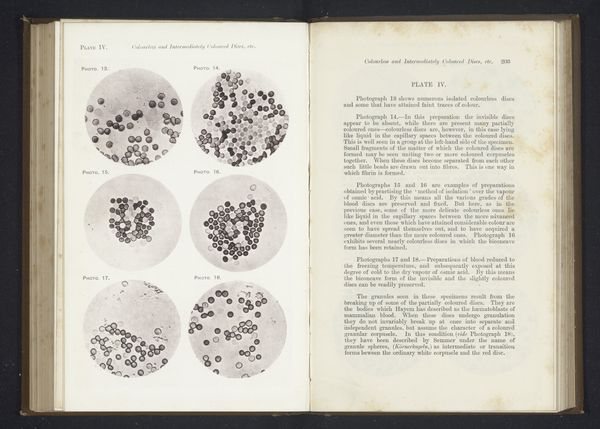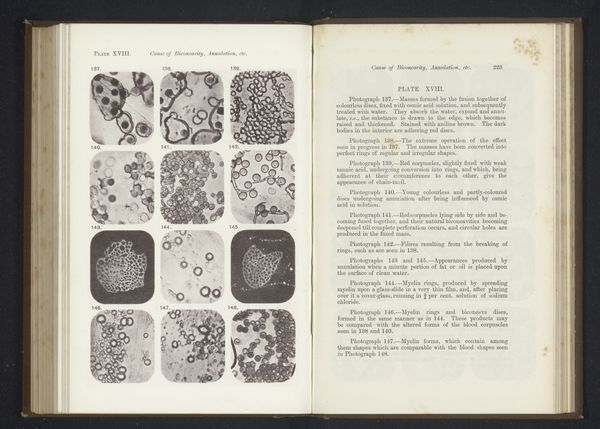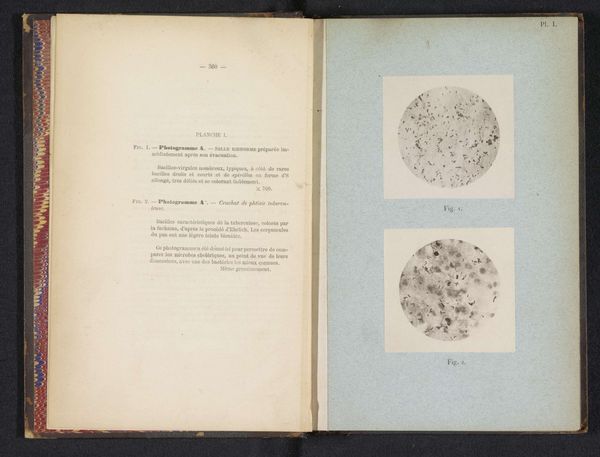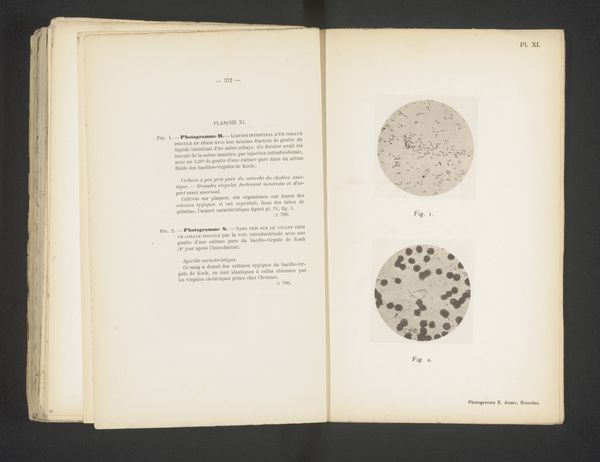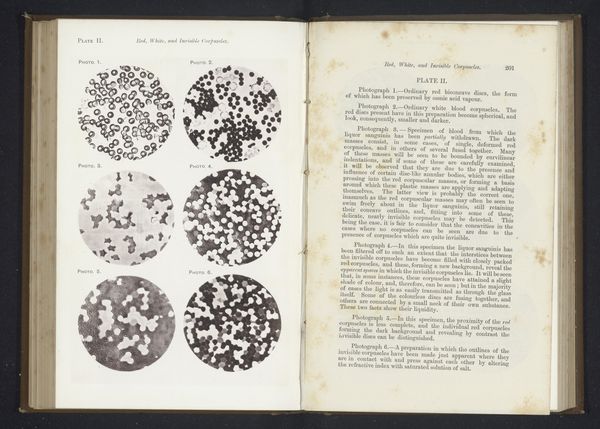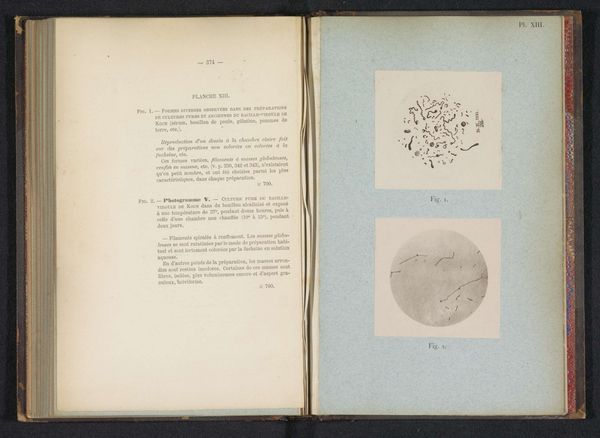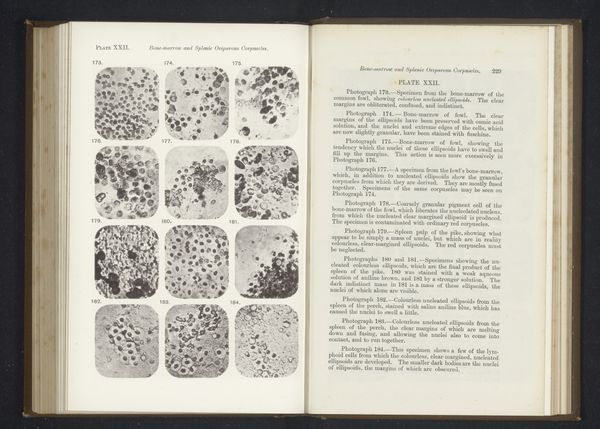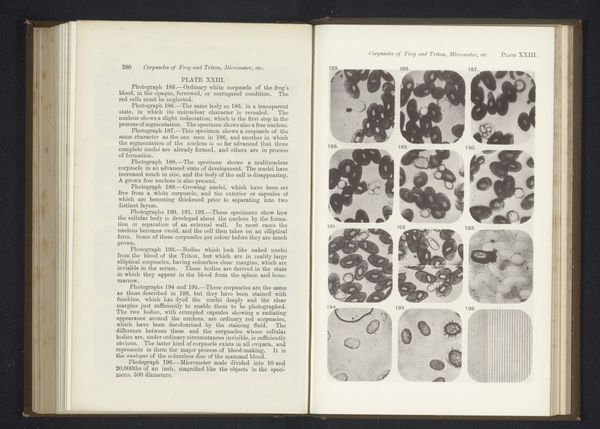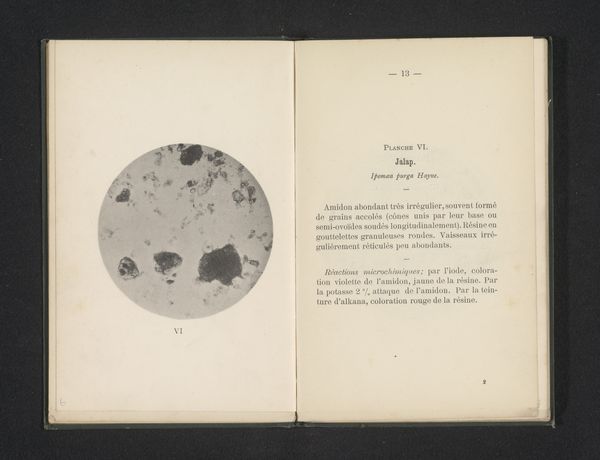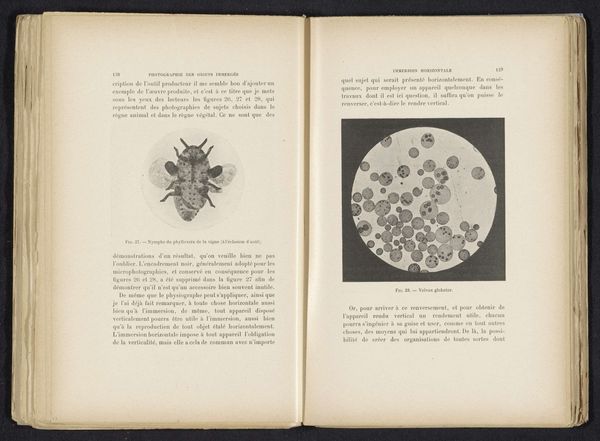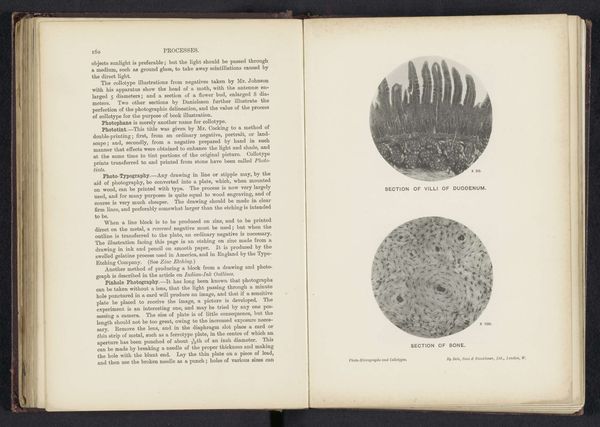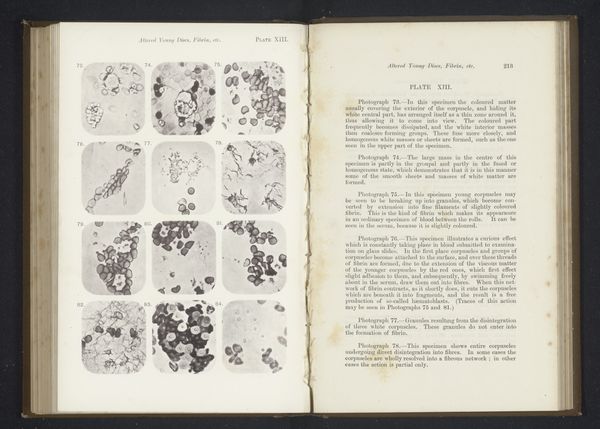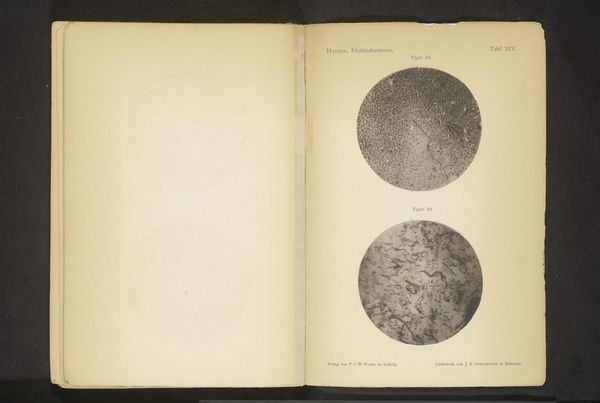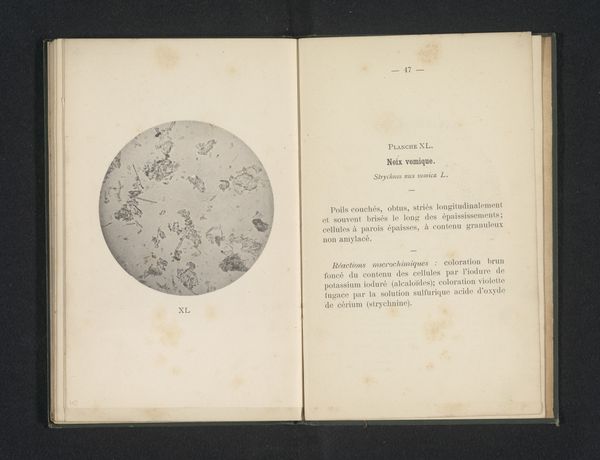
#
script typeface
#
aged paper
#
homemade paper
#
hand drawn type
#
personal sketchbook
#
thick font
#
handwritten font
#
golden font
#
letter paper
#
historical font
Dimensions: height 213 mm, width 135 mm
Copyright: Rijks Museum: Open Domain
This is 'Zes vergrotingen van kleurloze bloedlichaampjes' by Richard Norris, an image showing magnified colourless blood cells. It's hard to say precisely when this was made, but it likely comes from a period when the microscope began to reveal the inner workings of the body. How did scientific imagery shape cultural perceptions? The move from hand-drawn images to photographs of blood cells would have altered the way people understood the human body. The use of photography aimed for objectivity and realism but it was also a social statement about the power of science and the scientific institution to reveal unseen truths. To dig deeper, we might look at the institutional history of scientific publishing or research the historical reception of microscopic imagery, especially among non-scientific audiences. With such research, the image of blood cells opens a window onto the complex interplay of science, culture, and power in 19th century society.
Comments
No comments
Be the first to comment and join the conversation on the ultimate creative platform.
